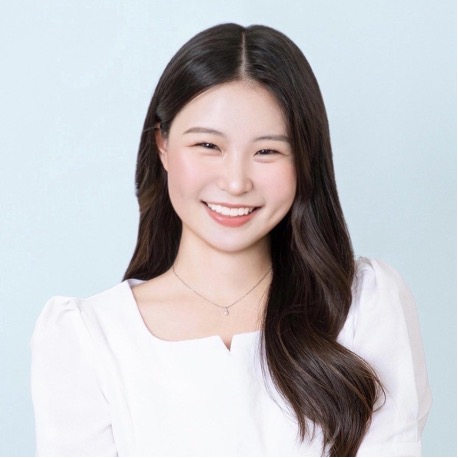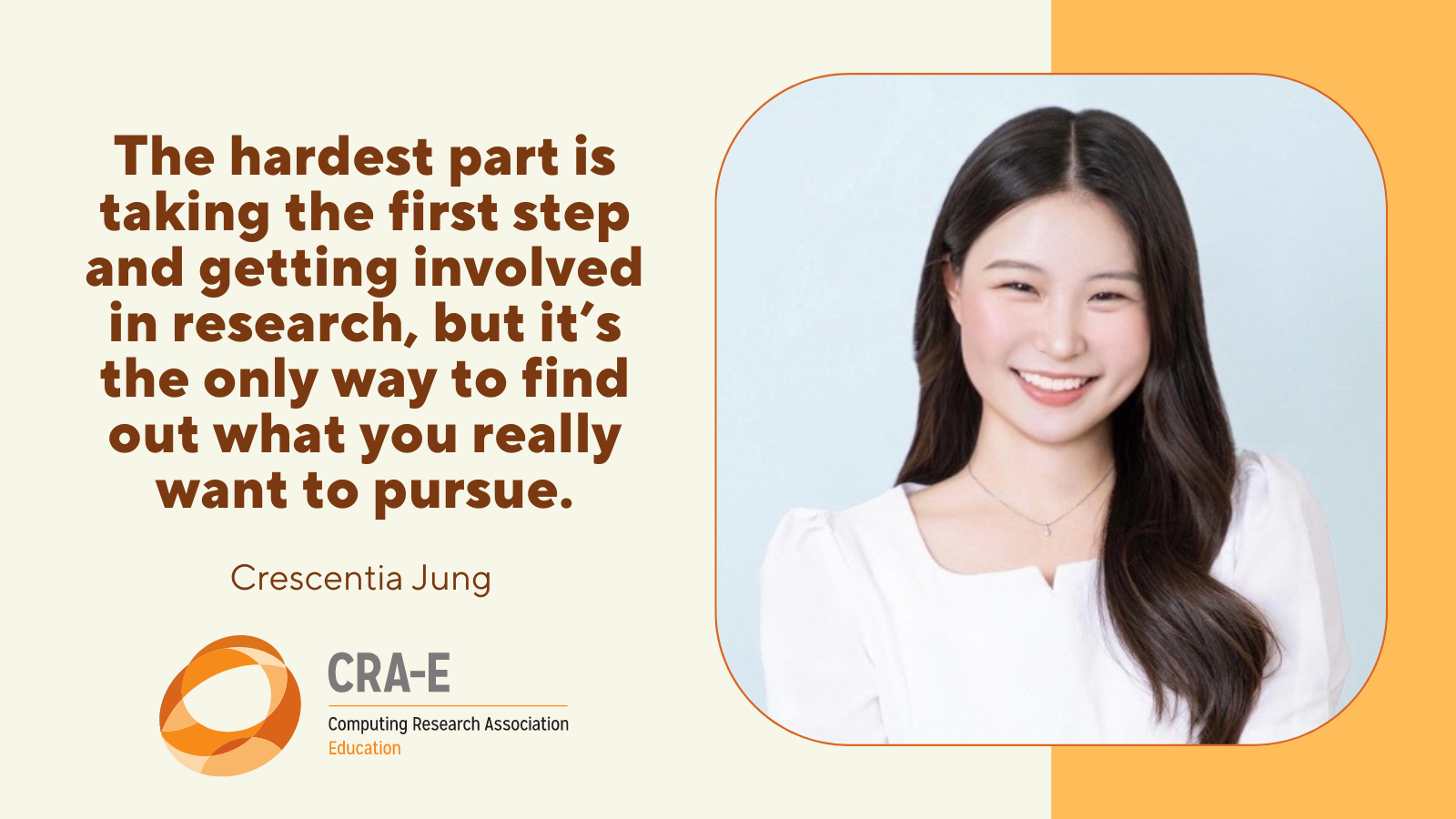CRA-E’s Undergraduate Research Highlights: Undergraduate Research Makes Visualizations More Accessible via Alternative Text
CRA-E’s “Undergraduate Research Highlights” series showcases outstanding research done by undergraduate students at universities and colleges across North America. Each article features the story of a successful undergraduate researcher and offers personal insights into their experiences with finding an advisor, undertaking new research projects, and discovering how research can impact their personal and professional futures. It is one of a number of CRA-E’s activities that foster and recognize talented computing researchers with the goal of increasing the research pipeline, promoting graduate education, and advocating research-based careers.
In addition to helping students understand the process of getting involved in research, the articles also serve as a venue for students to pass along advice to others who aspire to become involved in research themselves. Students selected for the research highlights include those receiving recognition in the CRA Outstanding Undergraduate Researcher Award competition. This series is written and edited by CRA-E Graduate Fellows.
 Undergraduate Research Makes Visualizations More Accessible via Alternative Text
Undergraduate Research Makes Visualizations More Accessible via Alternative Text
Crescentia Jung, B.S. in Computer Science, University of Wisconsin-Madison
This Q&A highlight features Crescentia Jung, an Honorable Mention in the 2022 CRA Outstanding Undergraduate Researchers award program. Crescentia graduated from the University of Wisconsin-Madison and is now at Cornell University pursuing a Ph.D. in Information Science. This interview has been edited for length and clarity.
How did you initially connect with the area of research you ended up working in?
During my freshman year, I was learning skills in my introductory computer science classes, and I wanted a space where I could actually apply those skills. By their nature, I think those introductory classes tend to teach you how to do things, but don’t really give you opportunities to actually use them to make a change. I think that’s something that you can find in research. I was seeking ways to learn how to make programs and computing technology more meaningful and user-friendly, and my computer science professor recommended reading research papers in the field of Human-Computer Interaction. Some papers I read were by professors at UW-Madison, and I emailed a few professors whose work interested me.
How did you connect with your undergraduate research advisor?
One of the professors I emailed was Professor Yea-Seul Kim. I found out about her through an interview she did as an incoming professor. That interview helped me get an idea of the types of projects she would be focusing on. I felt they were kind of what I wanted to focus on, so I reached out. When I first met her, I didn’t have anything specific to bring to the table, just topics and fields in mind, but she seemed very curious about my experiences and interests. I think that was exactly what I needed, someone that could be really supportive and help me find my research interests. That stood out the most from the talk that I had with her. Professor Kim helped me dive right into the research process.
Can you tell us about your project?
Professor Kim introduced me to the topic of accessible data representation. People with visual impairments use screen readers that read aloud alternative text to access visual content. However, the current reality is that most alternative texts are not informative enough to provide access to visual information. For example, some visualizations on news websites are rich with information that the alternative text fails to communicate. It is imperative to make visual content accessible for people with visual impairments to ensure equal access to information.
We collaborated with Prof. Yuhang Zhao, who has a lot of experience with research involving people with visual impairments. I conducted interviews with 22 participants with visual impairments to better understand their needs and preferences. I compared the insights from our interviews with existing guidelines and current practices for alternative text, allowing us to develop recommendations for creating informative alternative texts to better support the needs of people with visual impairments. For example, we found that participants were trying to visualize the visualizations in their head while listening to alt texts. Because our brains can only handle so much information at once, the participants emphasized including the chart type, axes, and data trend in alt texts. For our detailed recommendations, check out our publication, which we presented at the IEEE VIS 2021 conference.
What challenges did you face in the research process?
I was working with qualitative methods for the first time. In the interviews, participants gave a wide range of fascinating insights and opinions. It was difficult to organize so many ideas in the beginning. We were doing thematic analysis, trying to find the common themes in the participants’ interviews, and sometimes many small themes would show up. But by talking through emerging themes with Prof. Kim and Prof. Zhao, it became easier to organize the findings in a clear and effective way, eventually converging on a collection of overarching themes.
Have any of your outside interests had any interplay with your research experience?
I think it’s important to have interests or hobbies that might not have any relevance to your research. For example, I love to work out, play tennis, and bake. Interestingly, I’ve had numerous times where I’d be doing these hobbies and I would think of an idea for my research.
Do you have any advice for other students looking to get into research?
I think that hands-on experience is the best way to figure out what interests you the most. The hardest part is taking the first step and getting involved in research, but it’s the only way to find out what you really want to pursue.
What are some of your favorite aspects of research?
I love sharing my research with others and learning about the research that others have done in the field. It’s a valuable opportunity to learn about new topics and get to know new people and their research interests. I love meeting new people and would love to chat if you have similar research interests or any questions! Feel free to reach out at cj382@cornell.edu. You can also read more about my research at crescentiajung.com.

— Edited by Yasra Chandio and Nadia Ady







